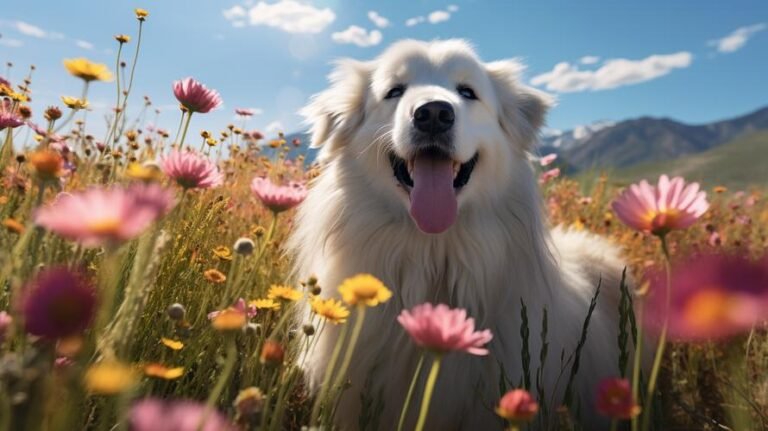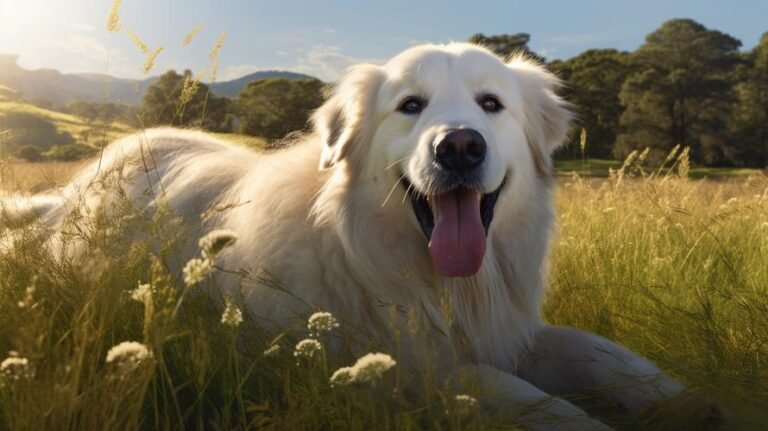Imagine for a moment, a dog so big and fluffy, it almost looks like a small-sized polar bear! Yes, that’s the Great Pyrenees for you – a large and majestic breed known for their loyalty, bravery, and gentle demeanor. These gentle giants may look tough as nails, but they have an incredibly soft heart, especially when it comes to food. After all, who doesn’t love a good treat, right? Now, you may be wondering, what do Great Pyrenees find absolutely lip-smacking? Sit back and relax, because you’re about to delve into the wonderful world of the Great Pyrenees’ favorite foods!
Preferred proteins of The Great Pyrenees
Protein is key for any dog breed, but when we’re talking about a breed as massive as the Great Pyrenees, protein becomes of even greater importance. High-quality sources of protein like chicken, turkey, fish, and beef should be at the top of your grocery list if you are lucky enough to share your home with a Great Pyrenees. Protein aids in muscle development and is essential for keeping them strong and active. Do remember, however, if you’re feeding your Great Pyrenees home-cooked meals, to ensure you include the right proportion and balance of other nutrients, such as carbohydrates and fats.
Carbing it up: Sweet Potatoes and Rice
Carbohydrates are another key component of the Great Pyrenees diet. They provide these canines with the energy they need to live up to their ‘great’ name. One particularly beneficial source of carbs is sweet potato. Besides being a rich source of carbs, sweet potatoes are packed with fiber, which can aid in digestion.
Who knew, right? Now when you see your fluff ball rushing towards that sweet potato pie during thanksgiving take note, they’re not just after the pie because it tastes good, but also because their body genuinely needs it! Although, to avoid any upset tummies, make sure your pooch isn’t biting into a heavily seasoned or sugar-coated piece.
Another favorite source of carbs for the Great Pyrenees is rice, preferably brown rice, as it is less processed and contains more nutritional value than white rice. It is gentle on their stomachs and also works excellently as a filler in their meals.
Fats – Not Just For Flavor
Fats are not just a flavor enhancer in the diet of the Great Pyrenees; they provide essential fatty acids and are critical for maintaining a glossy and healthy coat. Salmon is a favored choice when it comes to a fat source, given its high Omega 3 and 6 fatty acid content. As a bonus, most dogs, not just Great Pyrenees, absolutely love the taste of Salmon! Eggy Goodness
Did you know your Great Pyrenees might enjoy a hearty omelet just as much as you do? Yes, that’s right. Eggs can be a great source of easily digestible protein for these palatial pooches! In fact, many dog owners have found that their Great Pyrenees particularly enjoys a good scrambled egg. Just remember, for your dog’s diet, eggs should be served thoroughly cooked and without any seasoning.
Leafy Greens are Great!
Just like us humans, the Great Pyrenees need their greens too! Incorporating veggies into their diet can have numerous benefits. Vegetables are low-calorie alternatives for adding bulk to their meals and helping them feel full.
Some vegetables, like spinach, also have additional benefits. Spinach is an excellent source of Vitamin K, Vitamin A, Manganese, and Folate, among other nutrients. It can support your dog’s immune system and is known to be quite a hit treat among the Great Pyrenees!
To Dairy or Not to Dairy?
Although dairy products contain valuable vitamins and minerals, not all dogs can digest lactose – a sugar present in milk – and it can cause them discomfort. However, most Great Pyrenees tolerate dairy well, and a good number of them are known to love cheese.
A Happy Great Pyrenees is a Hydrated One
In all the talk about food, we mustn’t forget the importance of water. A dog, on averages, needs between 8.5 to 17 ounces of water per 10 pounds of body weight. For a breed as big as the Great Pyrenees, this can amount to a lot of water. So, always ensure they have access to fresh, clean water.
Remember, every Great Pyrenees is unique, and so are their preferences and dietary needs. Before making any significant changes to their diet or introducing new food items, it’s best to consult with your veterinarian. What may be delicious and nutritious for one dog may not be ideal for another. Enjoy exploring the gustatory world of your Great Pyrenees, because nothing spells love quite like a carefully prepared meal!



